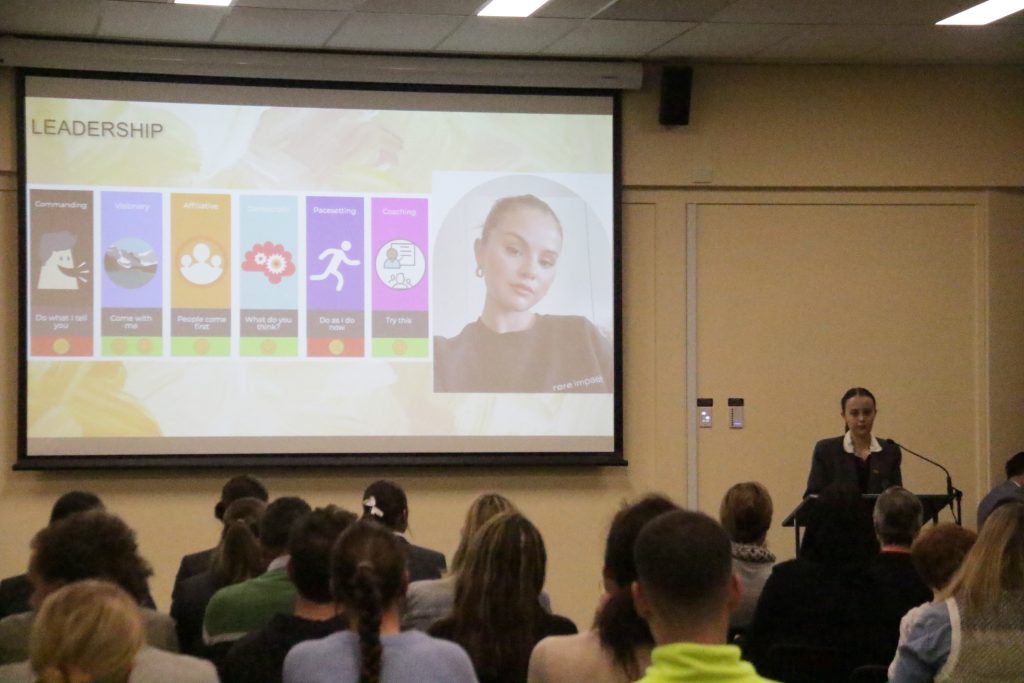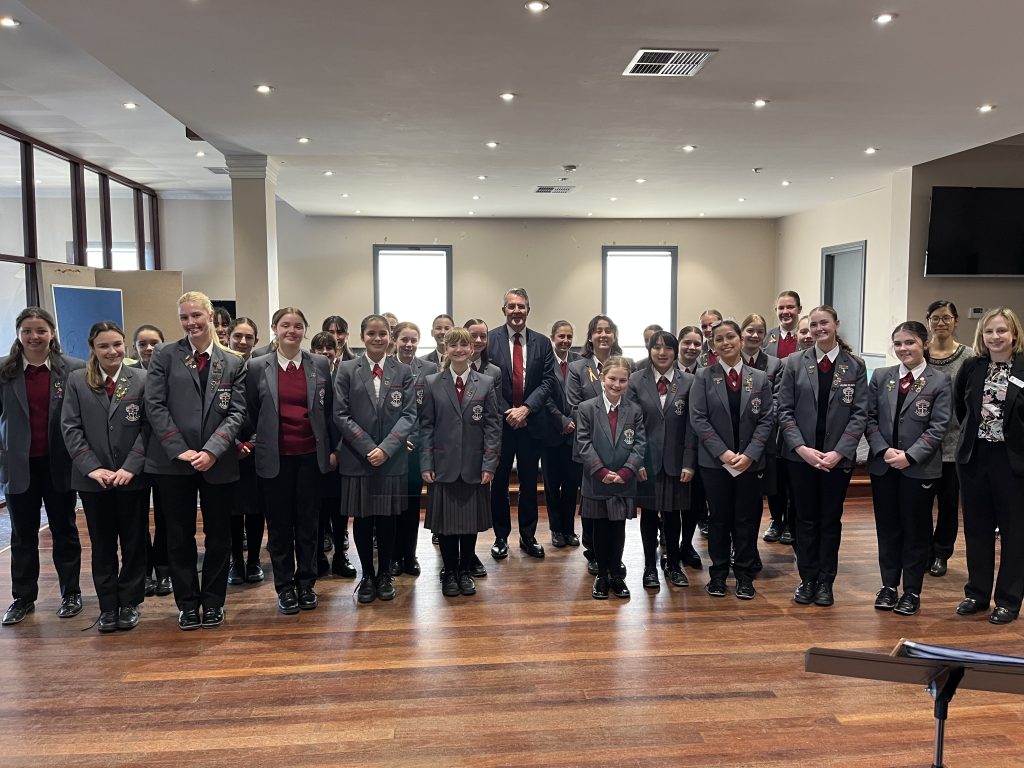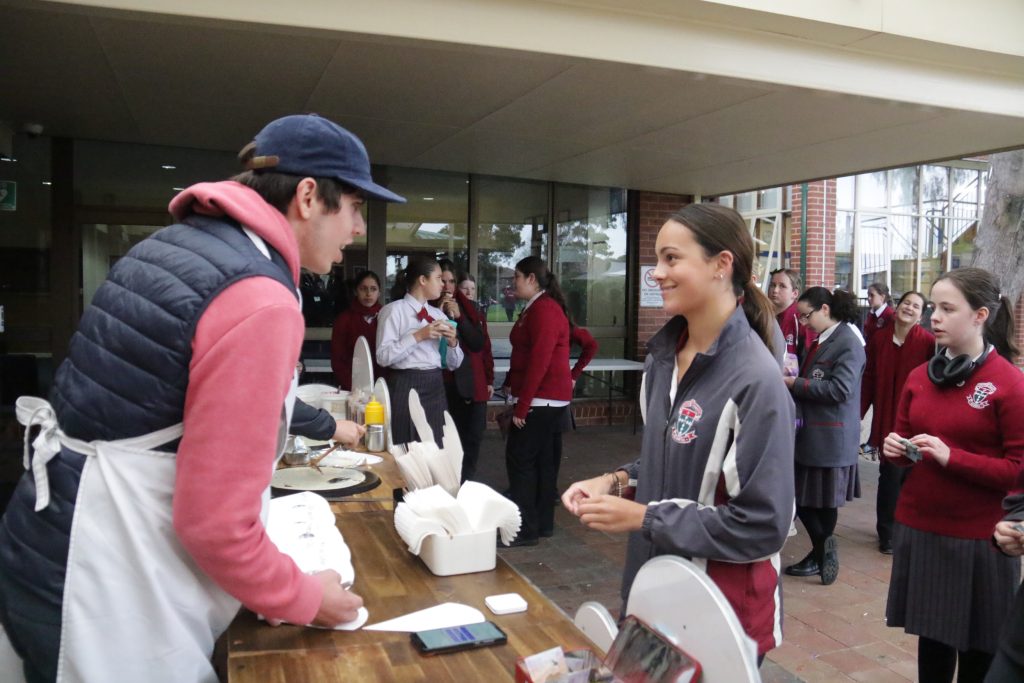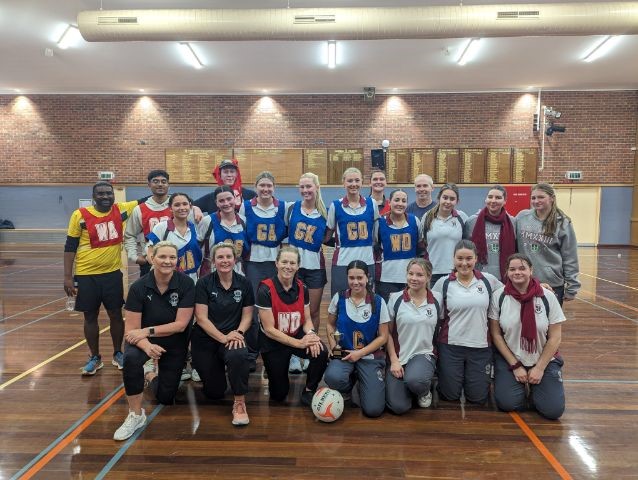Wellbeing and Engagement
Over the past two weeks, our students have been involved in some wonderful activities as part of our Book Week and Languages Week celebrations. Our students defeated staff by one point in a hotly contested netball match, our Kilbreda Chorale shared their amazing musical talents with elderly citizens at the Mentone RSL club and our VCE VM students showcased their individual projects to family and friends. It has been fantastic to observe our students seizing opportunities to discover their passions and striving to consistently achieve their best.
Father’s Day
Our fathers and father figures are truly inspirational and influential. They provide so much for us that often goes unrecognised. From the earliest moments of our existence, our fathers, and father-figures are the first ones we look up to, the ones who shape our perceptions of the world and the ones who lay the foundation for the people we become. We wish all the Kilbreda fathers and father figures, the unsung heroes, who shape our lives with love, guidance and unwavering support, a Happy Father’s Day. Thank you for providing the blueprint for the type of people that we want to be – strong, kind, hardworking and supportive.
Empowering Personal Safety Strategies
In a world that’s evolving at an astonishing pace, empowering our students with the knowledge and skills they need to navigate safely is of paramount importance. From online interactions to physical environments, understanding personal safety is crucial for teenagers. Over the past couple of weeks, through the pastoral program, we have delved into the key aspects of personal safety and the knowledge and skills our students require to ensure their wellbeing. This included:
Trusting Your Intuition
Instincts are a powerful tool that we often underestimate. Students have been encouraged to trust their gut feelings. If something doesn’t feel right, it probably isn’t. Students were reminded that their intuition can serve as an early warning sign when interacting with people in physical or online environments.
Digital Caution
With social media becoming an integral part of our students’ lives, we recognise the importance of online safety education. This week, the Proactive Policing Unit spoke to our Year 8 and 9 students about the significance of strong, unique passwords, the importance of privacy settings on social media platforms, and the need to approach online relationships with caution. The student wellbeing team has also addressed with students the glorifying of bullying-type behaviour on TikTok and the influence it can have on how we act and behave. Students were reminded of the College’s positive behaviour expectations.
Healthy Relationships
One of the cornerstones of personal safety is fostering healthy relationships. Empowering our students to recognise the characteristics of a positive relationship, including mutual respect, effective communication, trust and support, has been a key priority this year. Through the Friendology program that we have implemented at Year 7 and 8, the Year 7 to10 Health curriculum and the Peer Support program, we have strived to equip our students with the knowledge to identify red flags in unhealthy relationships, such as controlling behaviour and disregard for personal boundaries.
Setting Boundaries and Consent
Through our Child Safety presentations and our health curriculum, we have been teaching our students to set and communicate boundaries, as this is an essential skill for personal safety. Students have been encouraged to have open discussions about consent – the cornerstone of all interactions, especially intimate relationships. Students have been reminded that consent must be ongoing and mutual in any situation.
Physical Safety Tips
Following student feedback in regard to their safety on public transport, we have had guest presenters discuss with our students physical safety strategies and assist them to cultivate an awareness of their surroundings. This included strategies like avoiding poorly lit areas, standing in the yellow designated safety areas on train platforms and utilising the phone available to call for assistance, and other self-defence tools to help them feel more secure. These teachings have been reinforced through our Year 9 self-defence program.
Emergency Preparedness
Students have been provided with strategies to enable them to confidently respond effectively in emergencies. They have been equipped with the knowledge of emergency services that they can contact and the importance of having trusted adults contact numbers available on speed dial in their mobile phones, should they require them.
Speaking Up and Seeking Help
Students are aware that it is important to speak up if they feel unsafe or experience harassment, bullying or any form of abuse. They have been taught how to report incidents to trusted adults within a school setting, and to the eSafety Commissioner (online incidents) and the Police.
In a world that is constantly changing, personal safety remains a steadfast priority. We encourage parents and carers to continue to have age-appropriate conversations with your children about personal safety and what to do if they find themselves in a situation that makes them feel uncomfortable.
National Child Safety Week: 3rd to 9th September 2023
National Child Protection week will be held next week where it will champion the message: ‘Every child in every community needs a fair go!’ It will be complemented with the theme ‘Where we start matters.’ The week aims to promote a safe and supported life for every child, now and into the future. Research tells us that a strong community is important for children and helps them to thrive and be safe. At Kilbreda College, we are constantly reminding both our staff and students that it’s the little things we do every day that can help create safe environments for young people. For instance:
- Being kind and gentle to each other.
- Being a positive role model.
- Getting involved in community activities and reaching out to others.
- Looking out for signs that something may not be right for someone and asking them whether they are okay.
- Listening to the needs of others and/or spending time with them.
- Avoiding blame and judgement; instead, just asking oneself What I can do to help?
Whilst we have a number of activities planned to promote the week, I would also like to draw parents’ and carers’ attention to the following webinars that are being facilitated as part of the National Child Protection Week Official program below:
I wish you and your family all the best for the week ahead. May you be awakened to the wonders of creation and Spring and your days be filled with joyous moments. I look forward to catching up with many of you at upcoming College events and to celebrating the gifts and talents of your children.
Stephanie Smyth
Assistant Principal: Wellbeing and Engagement






